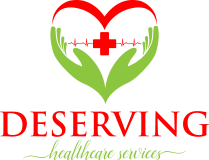Parenteral & enteral nutrition
If you need immediate assistance, please feel free to call us at (484) 688 1346. We are always here to help and provide the best possible care for you and your loved ones.
Parenteral and enteral nutrition:
Parenteral and enteral nutrition are methods of providing nutrients to a person who is unable to get enough nutrition from regular food and drinks.
Parenteral nutrition: Parenteral nutrition is the administration of nutrients directly into the bloodstream through a vein, bypassing the digestive system. This method is typically used for people who are unable to eat or drink, such as critically ill patients or those with certain gastrointestinal disorders. Parenteral nutrition is delivered through an IV catheter and typically includes a combination of carbohydrates, proteins, fats, vitamins, and minerals.
Enteral nutrition: Enteral nutrition is the administration of nutrients directly into the gastrointestinal tract, usually through a feeding tube. This method is typically used for people who are unable to eat enough to meet their nutritional needs or who have trouble absorbing nutrients from food, such as those with certain digestive disorders or those recovering from surgery. Enteral nutrition can be delivered in liquid form or as a specialized formula.
Both parenteral and enteral nutrition can be life-saving for people who are unable to get enough nutrition from food and drinks, and can help to prevent malnutrition and support the healing process. However, it’s important that these methods are used under the supervision of a healthcare professional, as improper use can lead to complications, such as infection or over- or under-nutrition.
How can we help:
An experienced nursing team can play a critical role in ensuring proper and effective parenteral and enteral nutrition. Some of the ways an experienced nursing team can help include:
Assessing the patient: An experienced nursing team can assess the patient’s nutritional needs and determine the best method of providing nutrition, whether it be parenteral or enteral.
Administering the nutrition: An experienced nursing team can properly insert and maintain the IV catheter for parenteral nutrition or the feeding tube for enteral nutrition, and monitor the patient for any complications, such as infection or bleeding. They can also adjust the rate of infusion as needed to ensure that the patient is receiving the right amount of nutrition.
Monitoring the patient: An experienced nursing team can closely monitor the patient’s vital signs and nutritional status, and respond promptly to any changes or problems, such as increased pain or inflammation at the IV site or feeding tube site.
Educating the patient: An experienced nursing team can educate the patient and their family about the proper care and maintenance of the IV catheter or feeding tube, as well as the importance of following the recommended nutrition plan.
Collaborating with other healthcare professionals: An experienced nursing team can collaborate with other healthcare professionals, such as doctors and dietitians, to ensure that the patient’s nutritional needs are being met and to make any necessary adjustments to the nutrition plan.
An experienced nursing team can play a crucial role in ensuring that patients receiving parenteral and enteral nutrition receive the proper care and support they need to stay healthy and recover from illness or injury.

